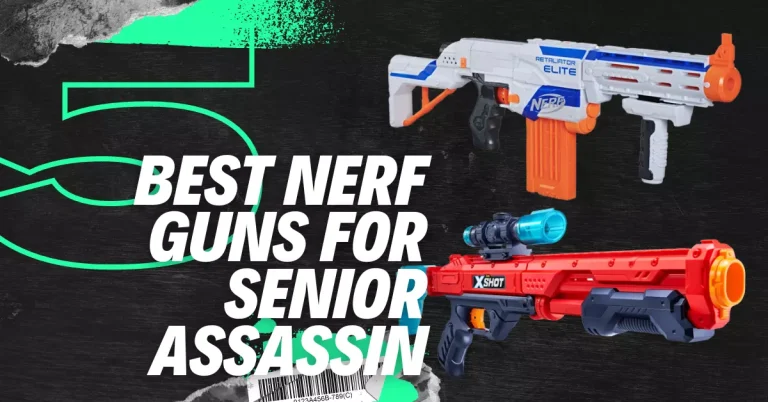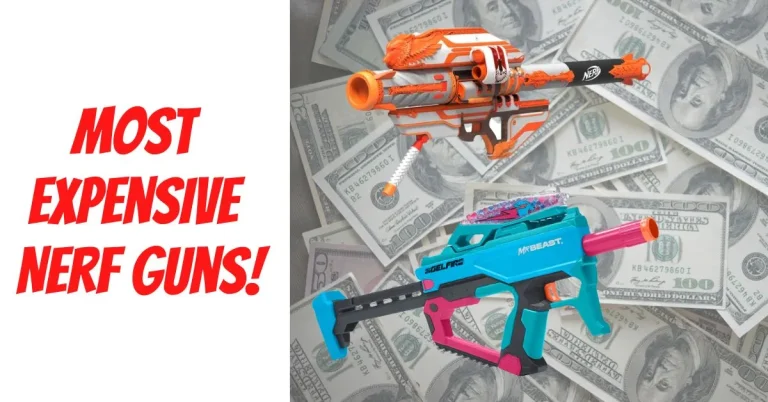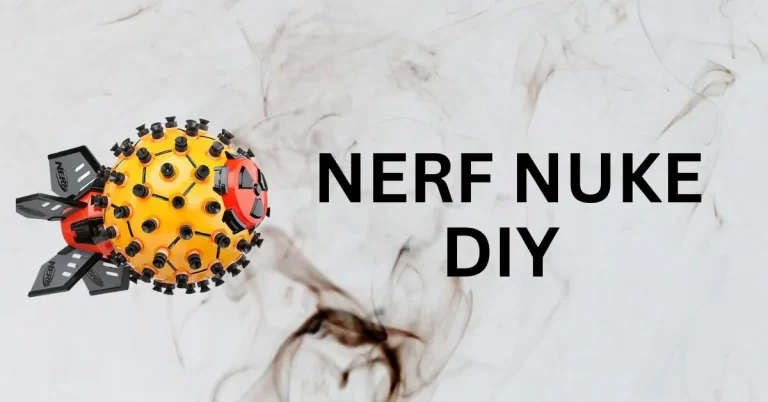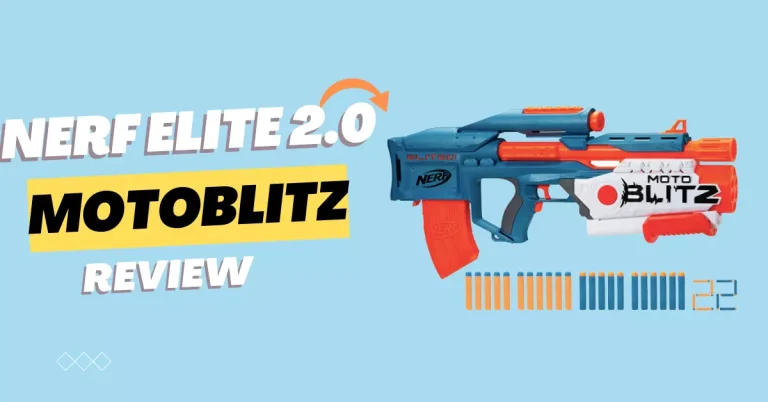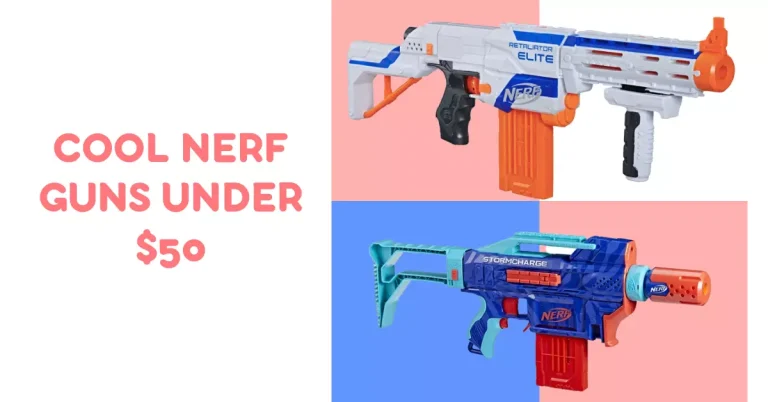Comparison of Nerf Rival Blasters and Traditional Nerf Guns
When it comes to engaging in friendly battles of foam warfare, Nerf has been a trusted name for decades. Over time, the brand has evolved and introduced new blaster lines to cater to different preferences and play styles.
In this article, we will compare two popular categories within the Nerf arsenal: Nerf Rival Blasters and Traditional Nerf Guns. By examining their features, performance, and suitability for various situations, we aim to provide an insightful analysis for both novice players and enthusiasts.
Traditional Nerf guns typically utilize foam darts and operate through manual mechanisms like priming and firing. However, the introduction of Nerf Rival Blasters has brought new elements to the foam-blasting experience, appealing to those seeking more intensity and accuracy.
Nerf Rival Blasters Vs Traditional Nerf Guns
Here’s a comparison table highlighting the key differences between Nerf Rival Blasters and Traditional Nerf Guns:
| Features | Nerf Rival Blasters | Traditional Nerf Guns |
|---|---|---|
| Projectile Speed | High velocity shots | Moderate velocity shots |
| Dart Type | Foam rounds | Foam darts |
| Magazine System | Yes, for faster reloading | Single-shot or small dart capacity |
| Range | Longer range | Shorter range |
| Accuracy | Increased accuracy | Moderate accuracy |
| Impact | More impactful shots | Lightweight foam darts |
| Operation Mechanism | Spring-loaded or pump-action | Manual operation |
| Target Audience | Older players, competitive play | All ages, casual play |
| Safety Considerations | Requires responsible use and gear | Suitable for younger children |
| Durability | Sturdy construction | Varies depending on model |
| Availability | Available in specialized stores | Widely available in toy stores |
| Pricing | Higher price range | Affordable pricing |
Features of Traditional Nerf Guns
Traditional Nerf guns are known for their simplicity and accessibility. They use foam darts as ammunition and require manual operation. Here are some key features of traditional Nerf guns:
Foam Darts
Traditional Nerf guns fire foam darts that are designed to be lightweight and safe. These darts come in various sizes and designs, and they are often compatible with different blaster models. The foam darts are propelled by air pressure created within the blaster.
Manual Operation
To fire a foam dart from a traditional Nerf gun, the user typically needs to manually prime the blaster by pulling back a plunger or slide. This action compresses air within the blaster, which is then released when the trigger is pulled.
Dart Capacity
Traditional Nerf guns often have smaller dart capacities, ranging from single-shot to multiple-dart cylinders or magazines. Reloading is necessary after each shot or when the magazine is empty.
Range and Accuracy
Traditional Nerf guns are designed for close to medium-range battles and offer decent accuracy within those distances. However, their range and accuracy may vary based on factors such as dart design, blaster model, and user technique.
Features of Nerf Rival Blasters
Nerf Rival Blasters represent a new breed of foam-blasting weaponry that introduces higher levels of power and precision. They are designed for older players and competitive foam sports enthusiasts.
Some common examples of nerf rival guns are Nerf Rival Prometheus, Nerf Rival Nemesis and Nerf rival Red sight. Here are some key features of Nerf Rival Blasters:
High Velocity
One of the distinguishing features of Nerf Rival Blasters is their high-velocity shots. These blasters can fire foam rounds at impressive speeds, adding an extra level of intensity to the gameplay.
Magazine-Fed
Unlike traditional Nerf guns, many Nerf Rival Blasters utilize magazines for faster reloading. These magazines can hold multiple rounds, allowing players to engage in rapid-fire battles without the need for frequent reloading.
Increased Range and Accuracy
Nerf Rival Blasters excel in terms of range and accuracy. Thanks to their enhanced power and specialized ammunition, these blasters can reach longer distances and provide more precise shots, making them ideal for outdoor battles and competitive play.
Impactful Shots
The foam rounds used in Nerf Rival Blasters are larger and denser compared to traditional foam darts. This results in more impactful shots that provide a satisfying thud upon impact, enhancing the overall gaming experience.
Darts Comparison
To better understand the differences between Nerf Rival Blasters and Traditional Nerf Guns, let’s compare the foam darts used in both categories:
Size and Design
The foam darts used in traditional Nerf guns are often smaller and lighter. They have a streamlined design, allowing them to travel decent distances with reasonable accuracy.
On the other hand, Nerf Rival Blasters use foam based rival balls that are larger and heavier, designed to carry more impact and stability during high-velocity shots.
Projectile Speed
While traditional Nerf darts rely on air pressure created by manual operation, Nerf Rival foam rounds are designed to be propelled by powerful mechanisms. This results in significantly higher projectile speeds for Nerf Rival Blasters, making them more suitable for competitive play and long-range battles.
Safety Considerations
Both traditional Nerf darts and Nerf Rival foam rounds are made with safety in mind. They are composed of soft foam materials to minimize the risk of injury during gameplay. However, due to their larger size and higher speeds, Nerf Rival foam rounds may cause more impact and should be used with caution, especially when playing with younger children.
Mechanism of Shooting Comparison
The operation mechanisms of Nerf Rival Blasters and traditional Nerf guns differ in several ways. Let’s examine these differences:
Manual vs. Spring-Loaded
Traditional Nerf guns require manual operation, which involves physically priming the blaster to build air pressure before firing. In contrast, many Nerf Rival Blasters feature spring-loaded mechanisms that automatically compress and release air, allowing for quicker and smoother firing.
Pump-Action vs. Bolt-Action
Some Nerf Rival Blasters employ pump-action mechanisms, where the user slides a pump grip back and forth to prime the blaster. This action increases the velocity of the foam round before firing.
Certain traditional Nerf guns use bolt-action mechanisms, requiring the user to manually slide a bolt backward and forward to prime the blaster.
Dart Capacity and Reload Time
Another crucial aspect to consider when comparing Nerf Rival Blasters and traditional Nerf guns is their dart capacity and reload time:
Dart Capacity
Traditional Nerf guns usually have lower dart capacities, with some models allowing only single-shot firing. Conversely, Nerf Rival Blasters often use magazines that hold multiple rounds, ranging from 12 to 100 or more, enabling continuous firing without frequent reloading.
Reload Time
Due to their smaller dart capacities, traditional Nerf guns generally have shorter reload times. Players need to manually insert new darts or reload single-shot blasters after each firing.
In contrast, Rival guns with magazine systems allow for quicker reloads, as players can swap out empty magazines for pre-loaded ones.
Range and Accuracy Comparison
Range and accuracy play a vital role in determining the effectiveness of Nerf blasters. Let’s compare these aspects for Nerf Rival Blasters and traditional Nerf guns:
Traditional Toy Guns
Traditional Nerf guns are designed for close to medium-range battles, typically providing a range of 20-50 feet (6-15 meters). The accuracy of these blasters can vary based on factors such as dart design, blaster model, and user technique.
Nerf Rival Toy Guns
Nerf Rival Blasters are known for their superior range and accuracy. Depending on the specific blaster model, these high-powered foam weapons can shoot foam rounds up to 100 feet (30 meters) or more, allowing players to engage in battles across larger spaces with greater precision.
Pros and Cons of Traditional Nerf Guns
Traditional Nerf guns have their own set of advantages and disadvantages:
Pros:
- Accessibility for all ages
- Easy-to-use manual operation
- Variety of blaster designs and themes
- Affordability
Cons:
- Limited range and accuracy compared to Nerf Rival Blasters
- Smaller dart capacities and slower reload times
- Less suitable for competitive play or long-range battles
Pros and Cons of Nerf Rival Blasters
Nerf Rival Blasters offer unique benefits and drawbacks:
Pros:
- High-velocity shots and increased range
- Magazine-fed systems for quicker reloads
- Enhanced accuracy and impact
- Suitable for competitive play and target shooting
Cons:
- Higher price range compared to traditional Nerf guns
- Potential safety risks if not used responsibly
- Limited availability in some stores or regions

I am a Nerf gun fan, researcher and modder. I post reviews about Nerf blasters and also share tips to solve issues with your toy guns.

